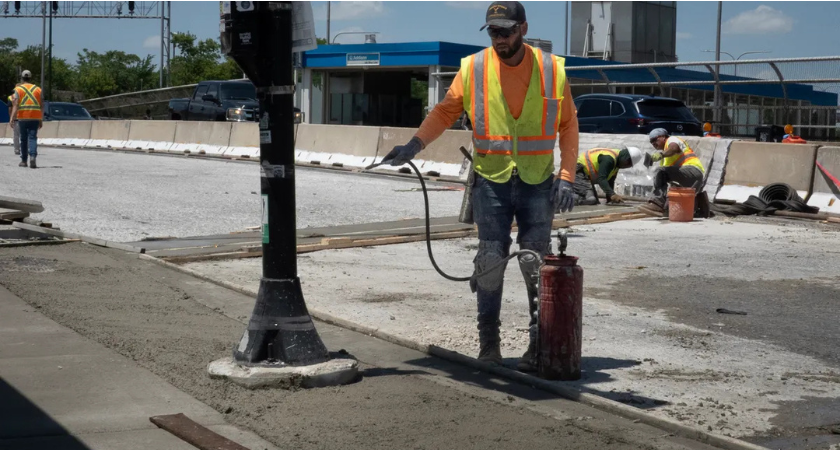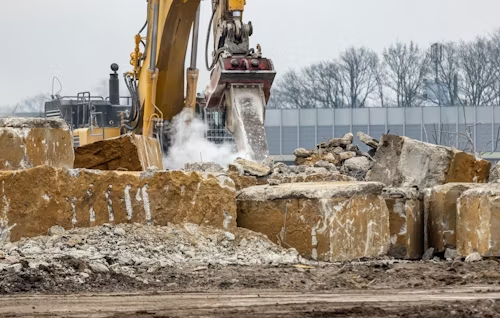
Illinois is set to embark on its most ambitious infrastructure initiative yet, with Gov. JB Pritzker announcing a $50.6 billion, six-year capital program aimed at modernizing the state’s roads, bridges, transit systems, ports, and airports. However, the rollout coincides with a major federal setback: the Trump administration has blocked $2.1 billion in federal funding for Chicago projects, citing objections to diversity and inclusion requirements.

According to the Illinois Department of Transportation (IDOT), the new plan includes $32.5 billion for roads and bridges and $18.1 billion for transit, rail, aviation, and waterways. A special $400 million allocation will target 223 locally driven projects, particularly those in economically distressed areas.
Some major allocations—such as $67.7 million for the Red Line and $72 million for the Canal Street Viaduct—include participation requirements through the U.S. Department of Transportation’s Disadvantaged Business Enterprise (DBE) program, which mandates the inclusion of minority- and women-owned businesses in federally funded contracts.
That requirement has become a flashpoint in Washington. On October 3, the Trump administration ordered a freeze on $2.1 billion in funds earmarked for Chicago Transit Authority projects, including the Red Line Extension and the Red and Purple Modernization Program.
“The American people don’t care what race or gender construction workers, pipefitters, or electricians are,” the U.S. Department of Transportation said in a statement. “They just want these massive projects finally built quickly and efficiently.”
The decision follows similar moves in New York, where the administration recently blocked over $18 billion for the Hudson Tunnel and Second Avenue Subway projects. Officials have said that ongoing reviews are being slowed further by the current government shutdown, as the White House seeks leverage in budget negotiations with Congress.
Despite the funding freeze, Illinois plans to move forward with state-backed investments. The $50.6 billion plan, part of the Rebuild Illinois capital program, will expand infrastructure improvements across all 102 counties, touching every major mode of transportation—from highways to pedestrian safety projects.
Of the total package:
While the federal hold on CTA projects creates uncertainty, Gov. Pritzker emphasized that $5.5 billion in funding has already been secured in the state’s fiscal year budget. “We’re not waiting for Washington,” an IDOT official noted. “This program will create jobs, strengthen communities, and modernize Illinois infrastructure—no matter what happens in D.C.”

The standoff over federal funds underscores the growing tension between state-level infrastructure ambitions and federal policy shifts under the Trump administration. The outcome could have lasting implications for contractor participation, labor diversity, and future transportation funding models nationwide.
For now, Illinois’ record-breaking program represents both an infrastructure opportunity and a political battleground—with billions in construction activity and thousands of jobs hanging in the balance.
Expanded Insight:
If federal restrictions remain, Illinois may seek alternative financing models such as state bonds or public-private partnerships to keep priority projects on track. Analysts say the standoff could also prompt other states to reassess their DBE frameworks and explore litigation over the legality of federal interference in existing grant agreements.
Meanwhile, contractors across the state are watching closely. The infrastructure surge promises a wave of bidding opportunities, but uncertainty around Chicago’s federal projects could slow the pace of preconstruction planning and bid releases in the short term.
Originally reported by Sebastian Obando in Construction Dive.